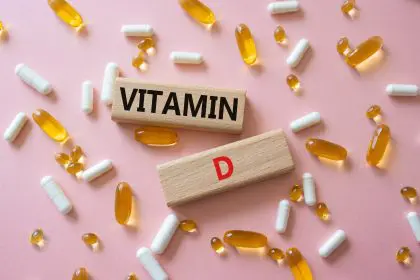Excessive alcohol consumption can have dire consequences on your liver, one of the most vital organs in your body. The liver plays a crucial role in filtering toxins, producing bile for digestion and storing nutrients. However, when overburdened by alcohol, it can suffer significant damage, leading to severe health problems. Recognizing the signs of liver issues from drinking too much can be life-saving, allowing you to seek medical intervention before the damage becomes irreversible. This article will explore the various signs that indicate your liver may be suffering due to excessive alcohol intake, providing you with the knowledge to take proactive steps toward better health.
Understanding liver function and alcohol impact
The liver’s primary function is to detoxify harmful substances, including alcohol. When you drink excessively, your liver works overtime to break down the alcohol, producing toxic by-products that can damage liver cells. Over time, this damage can lead to inflammation, scarring and ultimately liver failure. Understanding how alcohol affects your liver helps in comprehending the severity of the signs and symptoms that may arise.
Early signs of liver issues
- Fatigue and weakness
One of the earliest signs of liver damage from excessive drinking is constant fatigue and weakness. The liver is responsible for metabolizing nutrients and providing energy to the body. When it is damaged, its efficiency decreases, leading to a persistent feeling of tiredness. This symptom often goes unnoticed as it can be attributed to various other factors; but, if you are a heavy drinker, it is crucial to consider liver damage as a potential cause.
- Abdominal pain and swelling
Persistent abdominal pain and swelling, particularly in the upper right side where the liver is located, can be a significant indicator of liver issues. This pain results from inflammation and enlargement of the liver, known as hepatomegaly. The swelling can also cause discomfort and tenderness in the area, making it essential to seek medical advice if you experience these symptoms.
Advanced signs of liver damage
- Jaundice
Jaundice is characterized by yellowing of the skin and eyes, indicating severe liver damage. It occurs when the liver cannot efficiently process bilirubin, a yellow pigment formed by the breakdown of red blood cells. High levels of bilirubin in the blood lead to jaundice, signaling that your liver is struggling to function properly. This condition requires immediate medical attention as it can indicate advanced liver disease.
- Chronic nausea and vomiting
Experiencing chronic nausea and vomiting can also be a sign of liver issues from drinking too much. The liver’s impaired ability to process toxins can cause digestive disturbances, leading to frequent nausea and vomiting. This symptom can significantly impact your quality of life and should not be ignored.
Severe liver conditions
- Liver cirrhosis
Liver cirrhosis is a severe condition resulting from long-term liver damage, often caused by excessive alcohol consumption. It is characterized by the replacement of healthy liver tissue with scar tissue, which impairs the liver’s ability to function. Symptoms of cirrhosis include severe fatigue, easy bruising and bleeding, itchy skin and fluid retention in the abdomen (ascites). If left untreated, cirrhosis can lead to liver failure and even death.
- Hepatic encephalopathy
Hepatic encephalopathy is a serious condition that occurs when the liver cannot remove toxins from the blood, leading to a buildup of harmful substances that affect brain function. Symptoms include confusion, personality changes, memory problems, and in severe cases, coma. This condition requires immediate medical intervention to prevent permanent brain damage.
Preventive measures and treatment
- Reducing alcohol consumption
The most effective way to prevent liver damage from drinking is to reduce or eliminate alcohol consumption. If you are struggling to cut back on drinking, seeking support from friends, family or professional counseling can be beneficial. There are also various support groups and programs designed to help individuals overcome alcohol dependence.
- Healthy diet and exercise
Maintaining a healthy diet and regular exercise routine can support liver health and improve overall well-being. Eating a balanced diet rich in fruits, vegetables, whole grains and lean proteins provides essential nutrients that aid in liver function. Exercise helps maintain a healthy weight, reducing the strain on your liver.
Seeking medical help
If you suspect that you have liver issues from drinking too much, it is crucial to seek medical help immediately. A health care professional can perform tests to assess liver function and determine the extent of the damage. Early diagnosis and intervention can significantly improve the prognosis and prevent further complications.
Recognizing the signs of liver issues from excessive drinking
Recognizing the signs of liver issues from drinking too much is vital for early intervention and treatment. From early symptoms like fatigue and abdominal pain to more severe conditions such as jaundice, liver cirrhosis and hepatic encephalopathy, understanding these signs can help you take proactive steps toward better health. Reducing alcohol consumption, maintaining a healthy lifestyle and seeking medical help when necessary are essential measures to protect your liver and ensure a healthier future. Your liver is a resilient organ, but it requires your support to function optimally. Taking action today can prevent serious health consequences tomorrow.











